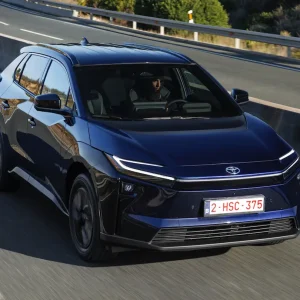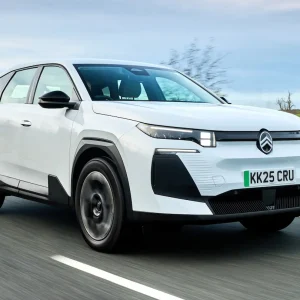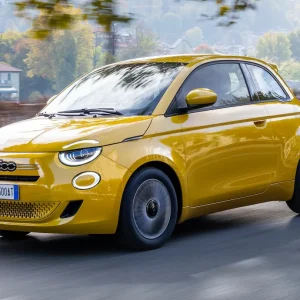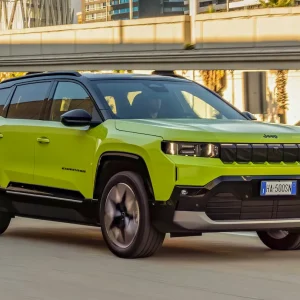The Korando name has been a part of the UK automotive industry for some time. In fact, the second-generation Ssangyong Korando arrived in the UK more than 20 years ago.
It has gradually morphed from a fairly serious off-roader to something a bit more sophisticated. Nothing that would be confused for a premium-badge car, but a dependable well-equipped 4×4 capable of hard work and towing.
While that guarantees a small but stable core of retail customers, the less off-road-biased generation of SUVs, including the Nissan Qashqai and Kia Sportage, have strong appeal for user-choosers of company cars.
The European version of the latest Korando was unveiled at the Geneva motor show in March, and first impressions were good. With chunky, squared styling, the car had a hint of the Volkswagen Tiguan about it, while the specification and interior finish were the best we had seen in a Ssangyong.
Leasing the key
But Ssangyong UK isn’t targeting large fleet business with the Korando. Instead, it has established relationships with a small number of leasing companies with the latest Rexton large 4×4 launched in 2018.
While the Rexton is better suited to heavy-duty activity more readily associated with 4x4s (a recent deal to supply Highways England with patrol vehicles is a clue), the Korando is targeting drivers who would choose an SUV as a family car.
Unlike its predecessor, which used a 184hp 2.0-litre diesel, the new Korando has a 136hp 1.6-litre – more appealing for a fleet audience. A 163hp 1.5-litre turbocharged petrol variant will be available from December.
If Ssangyong hasn’t been on your radar as a fleet supplier in the past, its seven-year/150,000 miles warranty might also appeal.
No penny-pinching
While Ssangyong might have used budget pricing as part of its attraction in the past, this era is now over. Prices for the entry-level 1.5T ELX start at £19,995 on the road, which is around the same as the starting point of the Nissan Qashqai range. Ssangyong would argue that the Korando’s superior specification compared with the Qashqai (including an extra 23hp) will win it fans.
The 1.6 D Pioneer auto we tried is at the same price point as the Nissan Qashqai 1.5 dCi N-Connecta auto, so we can see that Ssangyong has benchmarked extensively against popular rivals. The Pioneer has an 8in touchscreen, heated front seats and Apple Carplay/Android Auto integration as standard.
Where this strategy might come unstuck is in higher BIK tax bills, as the CO2 emissions of 152g/km are substantially higher than the Qashqai’s 110g/km – making its current BIK tax rate 30% compared with the Korando’s 36%.
A worthy effort
We tried the Ultimate grade with all-wheel drive too, and the interior enhancements made it feel more worthy of the near £32,000 asking price (think 10.25in dashboard screen, leather upholstery, heated and ventilated front seats), and when squaring up against rivals for this money, the Qashqai adopts a more powerful 150hp engine, with a higher CO2 output, which closes the BIK tax gap.
The Korando is an agile performer around town, and although the ride is on the firm side, bumps are not too intrusive. The diesel engine note does make itself heard at higher revs, however.
The Korando is clearly the best Ssangyong car to date, and feels as good as most mainstream SUV rivals. However, a little more work on its fleet appeal is needed before it is given unqualified approval.
Ssangyong Korando 1.6 D Pioneer auto
P11D: £25,925
Fuel consumption: 48.7mpg
CO2 (BIK band): 144g/km (36%)
BIK 20/40% a month: £156/£311
Boot space: 407 litres
Engine size/power: 1,597cc/136hp





